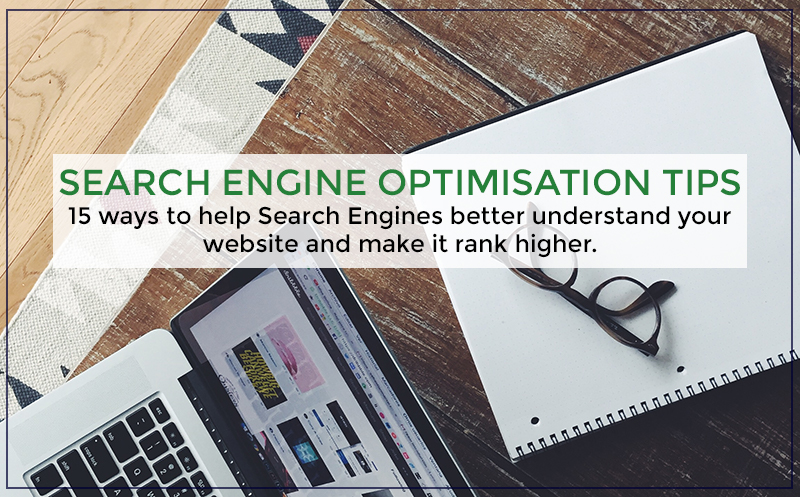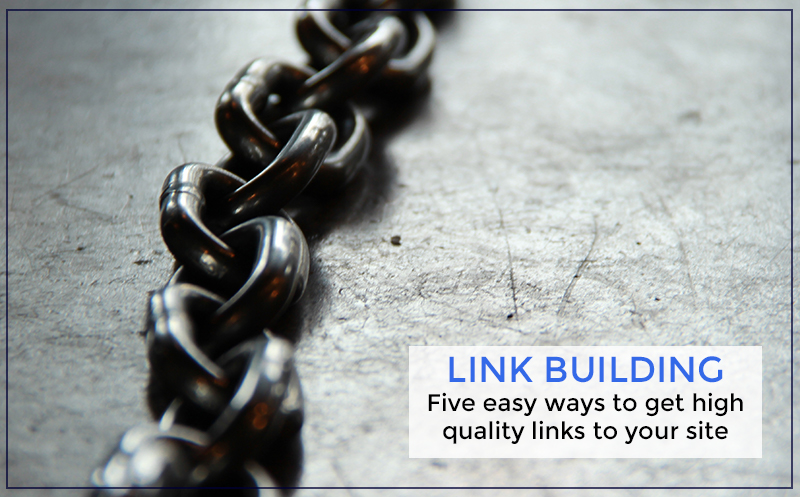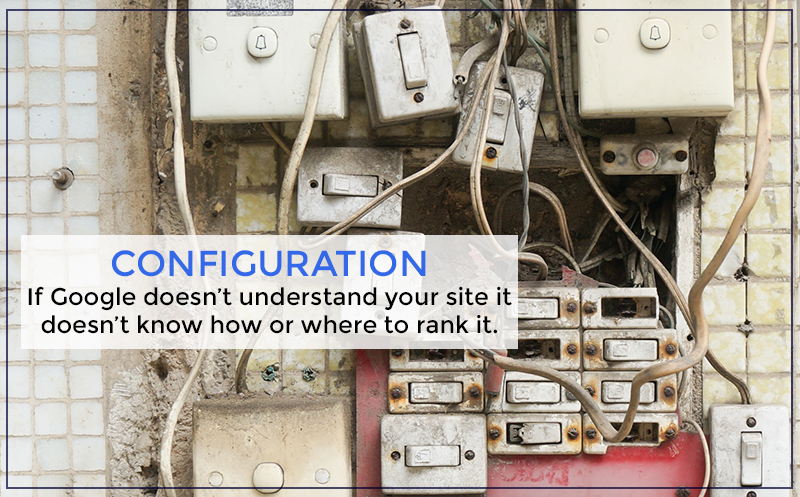SEO, or Search Engine Optimisation, has a reputation for being a bit of a dark art. In reality it’s not and its worth understanding because done well it gets big results.
We’ve pulled together 15 of our best search engine optimisation tips to help you get your website found more often through good SEO practices.
Good SEO services are not what you’re offered when you get a phone call from someone saying they’ll get you on the first page of Google if you pay them $99/month.
The best SEO services are transparent. Your agency can show you what they’ve done and clearly link the changes to search ranking movements.
Great organic search ranking takes a consistent effort over time. BUT, it’s something that businesses are richly rewarded for in terms of low cost leads later PLUS consistent business growth.
Don’t forget that we offer a thorough SEO Audit to give your business a really good kick start towards getting found more often.
Search Engine Optimisation Tips: Publication
The actual content on your website is arguably the biggest factor in terms of how often you get found in organic search results. Targeted content also ensures it’s the people you want to find you who are actually finding you.
Implementing a well thought out content publication strategy will grow your authority and, ultimately, reduce the cost of acquiring new clients.
Blogging is how I first entered the online space. I love writing and thoroughly understand the ins and outs of getting your website found by people looking for information.
Getting started can be difficult, especially if you don’t enjoy writing, but it is something that you can get done for you.
HINT: we offer a blogging for business service that is designed to get more leads for you. Hit us up if you would like to know more, a conversation costs nothing.
[caldera_form id=”CF5755446851f08″]
It’s not unusual to speak to a business that have been blogging but have found they aren’t getting new clients as a result. That’s usually because their blog topics and titles haven’t quite hit the mark in terms of what people are actually looking for. Sometimes it’s because what they’ve written is hard to read or understand. And, often, they don’t have strong calls to action on their website.
Calls to action and lead capture won’t help your SEO but getting lots of traffic to your website isn’t much good if there’s no pathway for converting them into clients and customers. Conversion pathways = a discussion for another day.
I’m sure I could write an entire book on blogging for business but let’s get started with a few SEO tips to help you tweak what you already have and plan more effective, new content.
Five simple search engine optimisation tips for getting your content found more often
Page Titles
Your page and post titles explain to a search engine what each piece of content on your website is about. The title of your page should include the specific keyword phrase that you would most like the page to be found for.
To give you a simple example:
The keyword I’ve optimised this post for is search engine optimisation tips. Consequently I’ve used that exact phrase in the title. It’s also the URL for the page. To help me more you’ll notice the phrase search engine optimisation tips peppered throughout the blog post.
For bonus points I’ve also used the term search engine optimisation tips in several headings and in the ALT text for my images.
Keyword Research
Blogging is a great strategy for improving the authority of your website with search engines AND your business authority with potential customers.
However, it’s important that when you invest in content it’s done strategically.
Using keyword research to inform your content strategy will ensure that you get the most bang for your blogging buck. A good understanding of you ideal client and what you offer combined with keyword strategy will help more of the right people find you via organic search sooner.
On one hand keyword research will help you understand the exact phrases people are using to search.
For example keyword research told me that 10x more people are looking for search engine optimisation tips then improve search engine rankings.
Consequently it makes more sense for me to write a post called 15 search engine optimisation tips than How to improve search engine rankings. The content of both posts would be very similar but this little bit of research tells me which one is more likely to rank well AND get seen more often.
If you’re a business looking for local customers, keyword research will tell you the best way to order location phrases.
For example search engine optimisation Adelaide is currently searched about 7x more often than Adelaide search engine optimisation. Likewise SEO services Adelaide is about 5x more common than Adelaide SEO services.
In a similar vein, knowing whether or not to add an s to the phrase you’re optimising for is also useful. For example web designers Adelaide is searched about 2x more often than web designer Adelaide.
They are small nuances but consistently using the search phrases that are likely to get you ranking higher and with more people searching will definitely add up.
Get in contact if you’re interested in having us complete some keyword research for you.
Ease of reading
The way in which writing is structured and styled has evolved quickly in recent years. Gone are many of the old ‘rules’ you might have learned at university.
Most of the text we consume is now consumed on screens. Short sentences and paragraphs with white space are essential for good user experience.
As search engines crawl text they get a feel for what it says and how easy it is to read. This helps to detect gobbledygook spam.
Be definitive in what you are saying (avoid passive voice) and ensure that what you’ve written is clear and concise.
Outbound links
Ideally you should have at least one outbound link on each page and post that you publish. The text you use to fix the link to should give some description of where the link goes to. For example:
Click here to learn more about how local SEO services work.
compared to
Read 12 questions you must ask before setting up a website.
The second shows clearly explains where the reader will find themselves if they click the link.
An obvious question is ‘why would I want to send people away from my website?’
You don’t. Outbound links are a mix of internal links within your site and links to other relevant, trusted websites. Any links to other websites should always ‘open in new tab’ so your visitors don’t lose their place on your site.
As much as possible you want to position yourself as an authority on your subject matter. However there are times when you’ll want to refer your visitors for further reading or; to someone who is a trusted authority on a subject that’s relevant to what you do but not the same.
Outbound links should add value to what your visitor has come to you for information on.
Linking to websites that have good authority will signal to search engines that your site is like them.
Traffic
Thankfully search engine rankings are not simply a measure of ‘he who gets the most traffic wins’ otherwise it would be difficult for the thousands of new websites that are created every single day.
However, a website with more traffic will rank higher than an equivalent site with less traffic.
Once you start publishing content on your website it’s essential that you promote it. Share it to your social media channels, not just once but multiple times. There are plenty of options for scheduling your social media content so use them. Naturally, the more views a well written and optimised post has, the higher it is likely to rank in organic search results.
In terms of paid advertising and lead generation, anything you spend should be driving traffic to your own website.
Investing in landing pages away from your website will not improve the authority of your own website and in some cases enable a third party to rank higher for your business than you.
LeadPages is the technology we recommend for adding landing pages to your own site if it’s not something that you can do easily within your current set up.
Search Engine Optimisation Tips: Link Building
The number and quality of links to your website help Search Engines determine the quality of the content on it.
In the past (and even today) SEO companies would offer services where they got your website to rank well by using link building. Then they would create nonsensical content on their many websites with links to your website. They also would have posted comments on other, legitimate, websites with links to your website. The large number of links to your website, using your desired keywords in the anchor text, would help you to rank higher in search results.
In 2012 Google rolled out their Penguin algorithm which penalised sites with ‘dodgy’ backlinks. This resulted in sites who had utilised dodgy ‘black hat’ SEO tactics being penalised and sent to search purgatory.
The most recent Penguin algorithm update has seen a change to real time rather than periodic updates.
If you get a phone call from someone offering to put you on the first page of Google for say no.
Quality links to your site are earned over time.
Some links are quick wins from simple things that you can do quickly and easily yourself. Others take more time and effort but have the double impact of not only increasing your authority with search engines, you’ll also be improving your credibility and authority in your subject matter with people.
Five search engine optimisation tips for getting quality backlinks to your website.
Guest posts on your site
Most of us get sick of our own voice at some stage. Developing a guest posting strategy for your own website is the perfect way to introduce new voices and add further value to your audience.
Inviting guest writers will result in a link back to your site if your guest promotes it to their audience.
Bonus points because you’re developing a positive relationship with a fellow business owner and will potentially get new/more eyeballs on your website.
Guest posting away from your site
This strategy is similar to having guest posts on your site but plays out in reverse. I suggest focusing on one or the other at a time and sticking with it for at least 6 months. There are relative strengths and weaknesses to both strategies and I can argue a good case for either.
Guest posts on other websites mean you should get a link back to your website in your bio as a minimum. The same as having guests on your own website you’re developing a relationship and build your subject matter authority.
Directory listings
Think Yellow Pages (just the free listing), True Local, local community business listings, sponsorship of your local footy club, etc.
Some are free and others will have a cost associated with them but they all represent good quality backlinks to your website.
Testimonials and reviews
Submitting a testimonial or review for a product or service you’ve used is an effective way to generate a backlink to your website.
PR
Imagine being quoted in a major publication, interviewed on television or featured in a magazine you know your target audience reads. Landing this kind of exposure not only positions you as an expert to a wider audience, it also results in a backlink to your site from a well-regarded media outlet.
If you’ve got an interesting story to tell don’t be afraid to pitch yourself. However, hiring an expert to help you get that coverage will get better results for you. We highly recommend Jenny Hassam and her team at Rhetoric PR.
SourceBottle and HARO are two places to get alerts from media writers looking for people to feature or quote in their upcoming stories. Make sure you have your elevator pitch ready and handy to submit for these opportunities as they arise.
Search Engine Optimisation Tips: Configuration
Search engines rely on complicated algorithms to return results. The configuration of your website impacts on how well a search engine understands what your website is about. Your job is to ensure that subject matter and intent of every page and post on your website is made clear.
How comfortable you feel about fiddling in the backend of your website will dictate whether you feel comfortable with DIY. How much control your website developer left you with will also impact on your ability to change stuff.
We offer a comprehensive SEO Audit that will ensure that your site is properly configured for improved search engine optimisation.
Five search engine optimisation tips for ensuring your site is properly configured to be found.
XML Sitemap Submitted
Sounds technical, doesn’t it?
It is and it’s important.
Your website’s XML sitemap is a file that lists all the URLs (pages, posts, etc) on your website. It includes information about when and how often each page or post has been updated and how important it is relative to other places on the website.
Your XML sitemap helps search engines to understand what your website is about. It also helps identify how relevant the information is likely to be to the person searching.
Meta descriptions
Meta descriptions are a short snippet that summarise what a web page or post is about. Your meta description must contain the keyword that you want the page to be found for. Your meta descriptions should be 150-160 characters in length because this is how much will be displayed in search results.
Ideally it should be enticing for your audience to click on because it’s the text that will be shown in search results.
If you don’t set a meta description the search engine will use the first 160 characters or so of your page or post instead.
Using this post as an example again, the meta description I created is:
Don’t be afraid of SEO. Here are 15 awesome search engine optimisation tips to help your business website get found more often in organic search rankings.
Clean up links
We’ve already talked about the importance of links to your site. Links away from your site and between pages on your site are also important.
It’s important to have a link maintenance program in place to ensure you don’t have broken links on your site. A broken link occurs when you’ve linked to a page somewhere on the internet that no longer exists. In some cases the URL of the page has changed.
Sometimes it will make sense to change the URL of a page on your own website (or to delete it all together). When you do this it’s important to update any links pointing to the page you’ve changed by using a redirect.
Broken links create vulnerabilities in your website. Keeping everything up to date on the link front is important for this reason.
Spam links are another common problem on websites. These can happen either as a result of someone hacking your site or by simply leaving a dodgy link in a comment on your website.
Our SEO audit includes a thorough examination of all the links to, from and within your website. We pick up broken links and identify spam links that may have been placed on your site by a third party.
Site Speed
Site speed is a significant consideration for search engines when they’re deciding where to rank your site. The gold standard for load time is less than 1s, if you’re more than 3s expect to get penalised. More than 6s and, as far as search engines are concerned, you might as well not have a website.
Server speed and the size of your site are two things which impact your site speed significantly.
The first step we suggest is ensuring images on your site are optimised in terms of size, quality and compression. A plugin like WPSmush can help you out on a WordPress site. You still may need to do some resizing yourself.
If your images are optimised but your site is still slow consider upgrading your hosting. In some cases a slow site may result from a poorly constructed website carrying more code than it needs.
What does that mean? Compare a ramshackle farmhouse that’s been extended ad hoc over a period of time with a new build that’s energy efficient and fit for purpose. If you’re stuck with slow site speed give us a shout and we can investigate.
Mobile Friendly Site
More than 50% of your website visitors will be on a mobile device.
In 2017 the negative impact on a site that hasn’t been properly built for mobile devices will increase.
If you have pop ups on your site you’ll need to ensure that they only show on desktop.
If you’re unsure about whether your site is completely mobile friendly give us a shout and we’ll take a look for you, on the house.
[caldera_form id=”CF5755446851f08″]
What should you do next?
If you’ve managed to make it through the last 2800 words, well done.
The purpose was not to make you feel overwhelmed but to provide you with a starting point.
I suggest taking one of the search engine optimisation tips and actioning it each week.
Start with your site configuration because that will give you quick wins. If the technical stuff scares you (or your time would be better spent doing something else) then have a chat to us about what our SEO Audit entails.
High up your to do list should be adding your site to some directory listings. Also, ensure that your Google for Business is properly set up. I haven’t gone into the details of google for business here, it’s a topic for another day.
Once you have your configuration in order the next step is to develop a publication strategy. Again, this is an area we can help you with. Right through from a ‘how to’ workshop to strategy development to complete done for you. If you want to know more about how regular blogging will help your business sing out and we can have a chat.
You’ll find that you link strategy will fall out of your content strategy. Decide whether having guest writers on your site, guest posting for other sites or PR is your preferred approach.
Anything in all of that you want clarified? Get in contact and let’s have a chat about getting your business to rank higher and get found more often in organic search results.
[caldera_form id=”CF57d7ff033ac96″]





